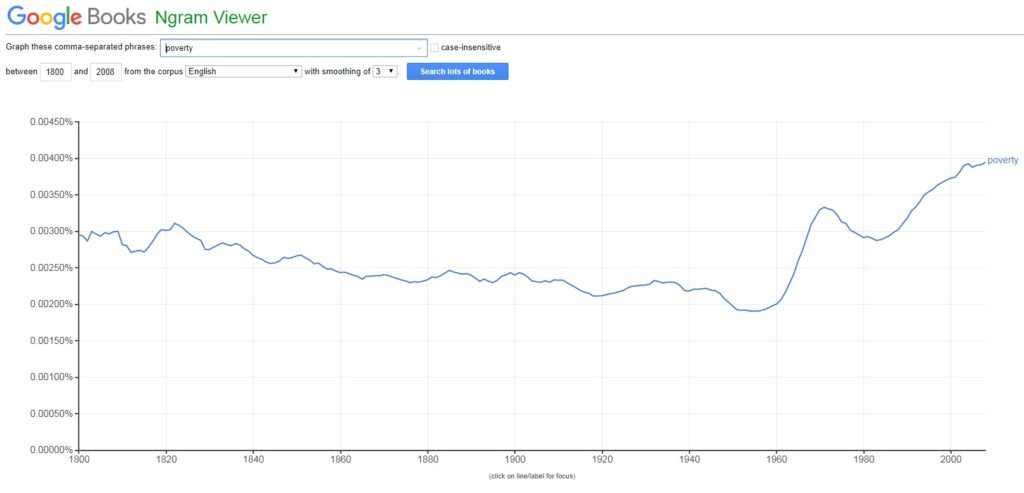Murray on the Prevalence of "Poverty"
Charles Murray‘s Losing Ground contains a most surprising claim:
[P]overty did not simply climb upward on our national list of problems; it abruptly reappeared from nowhere. In the prologue to this book, 1950 was described as a year in which poverty was not part of the discourse about domestic policy – indeed, as a year in which the very word “poverty” was seldom used. The silence was not peculiar to 1950. From the outset of the Second World War until 1962, little in the popular press, in political rhetoric, or in the published work of American scholars focused on poverty in America.
When Murray wrote these words, there was really no way to verify this climb. When I read this passage, I was fairly incredulous. Now, however, Google’s Ngram can check this quote in the blink of an eye. Result:

How wrong I was. Murray’s I-was-there account matches the data very closely. Use of the word “poverty” was in slow decline until about 1960. Then in a few years, the prevalence of the word rose about 70%, receding moderating in the early 1970s. The word’s rise resumed in the mid-80s, right around the time of Losing Ground‘s publication. Coincidence? I think not. Murray’s influence is so mighty, he single-handedly changed the words of the English-speaking world.
The post appeared first on Econlib.

